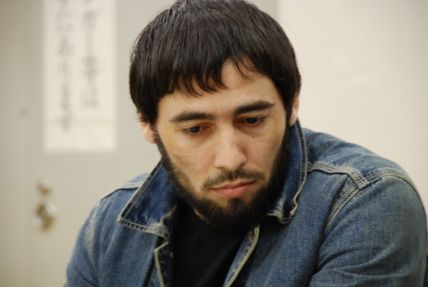|
|
Other
Slain Russian Journalist Anna Politkovskaya's Legacy Examined in Tokyo
Monday, October 4, 2010
 Chechen
Chechen
Tokyo -- A tribute to Russian humanitarian journalist Anna Politkovskaya was held on Sunday afternoon, commemorating the fourth anniversary of her assassination on October 7, 2006, the birthday of Russian leader Vladimir Putin.
The event took place in the Bunkyo Civic Center, Tokyo, and featured speakers as well as a documentary film entitled, "Letter to Anna."
The main speaker was a Chechen asylum seeker in Japan who described both the devastated situation of the Chechen homeland as well as the harsh attitude toward asylum seekers shown by the Japanese government.
Anna Politkovskaya reported frequently on the Second Chechen War after it began in 1999 and wrote articles severely criticizing the Putin regime as it carried out its military aggression against Chechnya.
The film "Letter to Anna" includes interviews with Politkovskaya before her death, as well as interviews with her family members and colleagues at Novaya Gazeta, the independent newspaper where she worked as an editor.
No one has been held to account for the murder of Ms. Politkovskaya, but in the film, the late Alexander Litvinenko (who also died in 2006 under suspicious circumstances) commented, "There is no doubt who killed her... It was an execution to teach a lesson to reporters."
According to a Masaaki Hayashi, a journalist who reported about Anna Politkovskaya and the corruption of the Putin regime, Politkovskaya wrote 511 articles in her lifetime and most of them were related to the Chechen issue. Her articles were noted for naming names and providing clear descriptions of places, dates, and other details.
On the eve of her murder, Politkovskaya had been writing about the issues of torture, kidnapping, and rape which the private soldiers of Ramzan Kadyrov, the president of Chechen state, had been engaged in.
Ryo Otomi, an editor of Chechen News said, "As the years have passed, people have become less interested in Anna. She is a person who devoted her life to the Chechens. I do not want people to forget this Russian journalist who deeply and vividly depicted the situation of the Chechens."
In the second part of the event, Shalhan Gakaef, a Chechen refugee who fled to Japan from Chechen warfare three years ago, described in his own words the oppression and military aggression of Russia toward Chechnya.
"Not only Anna, but many foreigners and Chechens have been killed for their involvement in the reporting the situation there. The Russians have been successively killing the people who say inconvenient things to the government," Gakaef contended.
The asylum seeker continued to say that the current situation for the media in Chechnya is even worse.
"The international media is not permitted to enter Chechnya; and even inside the country, the Chechen people cannot get international information. The world today simply doesn't know what is going on in Chechnya," he said.
"The warfare is ongoing," he continued, "During the first and second Chechen wars, about half a million Chechens lost their lives... and no one showed great concern about that."
Gakaef fled to Japan when his life had become endangered in his homeland. Nevertheless, the Japanese government's attitude toward asylum seekers like him remains very cold.
Although Japan is party to international conventions on refugees and asylum seekers, it hardly ever grants asylum applications and prohibits them from obtaining employment.
Gakaef himself has repeatedly applied for asylum in Japan over a period of two years, but he has not yet been granted official refugee status.
Former Minister of Justice Keiko Chiba had publicly championed a solution to Japan's tough policies on refugees, but some say that the reality has been worsening.
Kaori Shu, a volunteer for a refugee aid organization, said that before the DPJ's victory in the summer 2009, the number of foreigners kept in custody by the Tokyo Immigration Bureau was about a hundred. One year later, however, this population has grown seven-fold to about seven hundred.
Amnesty International is planning to hand a protest letter to Russian President Dmitry Medvedev next month calling for the freedom of expression and a fair judicial system in the Chechen region. Signatures are being collected from all over the world, and so far about 2,000 have been collected from Japan. The organizers are appealing for more.
Photo: Asylum Seeker Shalhan Gakaef
Credit: Masaaki Hayashi
PanOrient News
© PanOrient News All Rights Reserved.
|
|

